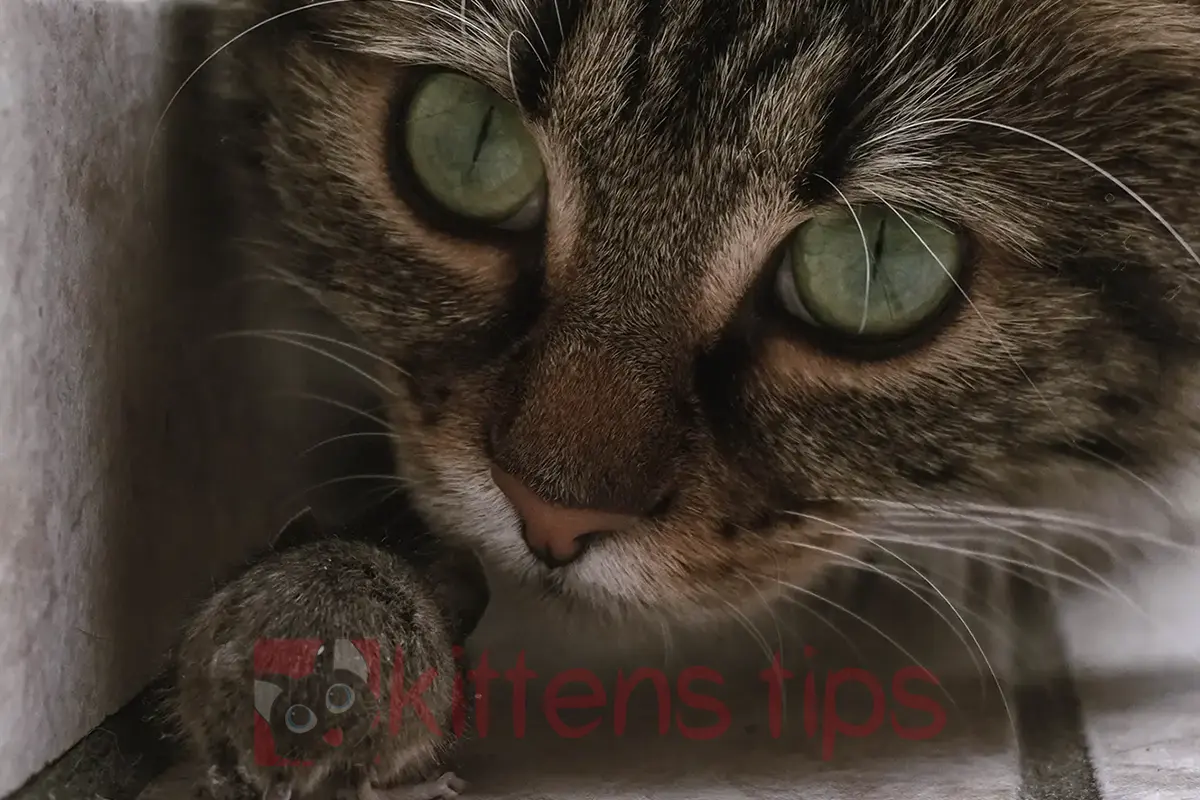Not all cat owners know how to interpret what it means when cats bring mice, birds, live lizards, or toy lizards to the doorstep, on the sofa, or wherever the owner is. While in rural environments, it’s a joy when a cat brings mice because it helps with rodent control, in some households, owners are absolutely horrified by this behavior of the cat. Especially if there are peoples who panic at the sight of rodents, whether they’re alive or dead.
Although domesticated for over 10,000 years, a cat’s predator instincts have not been altered. For a house-dwelling cat, it’s normal to catch mice, sparrows, pigeons, small-sized birds (even chicken chicks), or lizards. These small creatures are part of the cat’s diet. Even if they don’t eat the catch, the predator instinct urges them to hunt.
Pourquoi les chats apportent-ils des souris ou des oiseaux, des lézards vivants ou des jouets à leurs propriétaires ?
To the dismay of many cat owners, these animals often choose to present their prey in front of their owners. Some cats even emit a specific meow to draw attention to the « gift » they’ve brought and persist until they’re certain that the owner has « taken notice » of their feat.
If you live in a house and have a cat, it’s almost certain that it has brought a bird, mouse, or other captured animal, whether alive or… deceased, at least once.
Even indoor cats don’t lag behind. The chances are slim that a cat residing inside will bring a mouse, lizard, or live prey, but it might bring small-sized toys and place them at your feet or in front of the bedroom door.
For a cat, the ability to hunt is its greatest skill and accomplishment. Naturally sociable, cats feel the need to share their success with those close to them. Therefore, they consider you part of their family, and the prey they bring is to demonstrate that they are capable of hunting and sharing their catch with you. You don’t necessarily have to be thrilled by this behavior, but you can offer a simulated smile of complacency to ensure the cat doesn’t feel offended.
Vous pouvez également lire : Pourquoi les chats bavardent-ils avec les oiseaux ? Dévoilement de l'énigme.
On rencontre également ce comportement chez les chats adultes qui ont de petits chatons. Ils amènent fréquemment des proies à leurs petits, émettant des sons spécifiques et miaulant pour rassembler les chatons autour de la capture. Au fur et à mesure que les chatons grandissent, la mère chatte amène souvent des souris vivantes, permettant aux jeunes de développer leurs compétences de chasse sur de vraies proies.
It’s worth mentioning that cats don’t necessarily hunt to procure food or because they are hungry. Hunting is ingrained in a cat’s DNA, and most of the time, the mice are left behind once life has departed. Many cats don’t eat mice, let alone rats.
